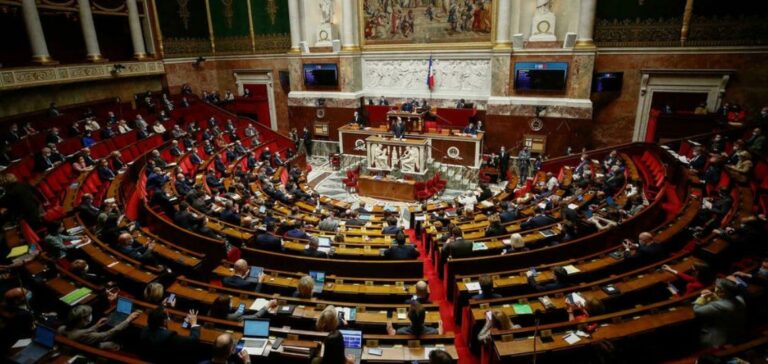Despite the political crisis on the pension reform, the French Parliament has definitively adopted on Tuesday, through a final vote of the Senate, a bill on the acceleration of renewable energies carried by the Minister of Energy Transition, Agnès Pannier-Runacher.
Objectives of the reform
The objective of the reform is to make France catch up with its great delay in renewable energies, under the pressure of the energy crisis and the climate emergency. The bill aims to increase solar power capacity tenfold to 100 GW and deploy 50 offshore wind farms to reach 40 GW, in line with President Emmanuel Macron’s 2050 goals.
Agrivoltaics
Another sensitive issue is the supervision of agrivoltaics. The law now considers agrivoltaics as a full-fledged solar energy sector, which was welcomed by France Agrivoltaïsme, which estimates that it could represent nearly 60% of the volumes of photovoltaic panels deployed by 2050.
The vote was acquired with 300 votes “for” and 13 votes “against”, mainly from LR and centrist senators. The most difficult negotiations concerned the planning of areas for accelerated deployment of renewable energies, as well as possible exclusion zones, with the approval of the municipalities. Local elected officials will have the final say on zoning, according to Agnès Pannier-Runacher.
“Gas plant”
The Syndicat des énergies renouvelables (SER) expects a “very strong mobilization of the services” of the State, while Engie welcomed the shortened instruction and development times planned in the dedicated acceleration zones. However, NGOs and actors of the renewable energy sector criticize the bill as a “gas factory”, insufficient for onshore wind energy and limited for solar energy. WWF calls on the mayors, who are at the heart of the system, to mobilize to give a real boost.






















